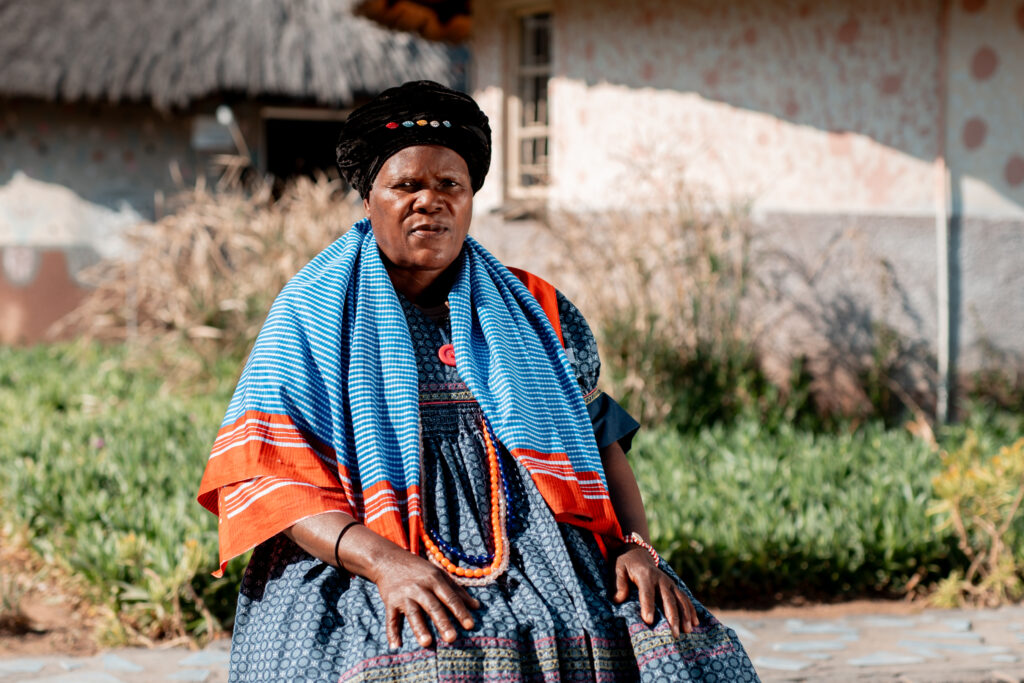Celebrating South Africa’s stature as a leading Sustainable Tourism destination that offers incredible cultural diversity and natural beauty, along with a unique heritage and warm people, South African Tourism is proud to present Setšong Africa Tea Crafters, one of South Africa’s many extraordinary offerings that highlight people and places that tourists can enjoy in a truly sustainable manner.
In South Africa, the integration of sustainable practices into the tourism industry is a testament to this belief. The World Economic Forum’s Travel and Tourism Competitiveness Report consistently ranks South Africa among the top countries for tourism competitiveness. This ranking is influenced by the genuine warmth and welcoming attitude of the South African people towards foreign visitors, a trait that enhances the allure of this beautiful nation.
Community-based ecotourism: empowering and preserving
At the core of South Africa’s sustainability efforts lies community-based ecotourism. This approach empowers local communities, allowing them to benefit from tourism while safeguarding their cultural and natural heritage. Community-owned businesses in South Africa exemplify the transformative power of tourism in uplifting and empowering communities. By integrating local populations into the tourism industry, these businesses ensure that the economic benefits are shared equitably among community members. This model also fosters a sense of pride and responsibility among residents, encouraging them to actively participate in the sustainable management of their resources.
One shining example is the Setšong Tea Crafters, an award-winning agri-business located in the rural areas of Limpopo. Setšong, meaning ‘culture’ in Sepedi, is a vehicle for the development of natural indigenous flora. This enterprise collaborates with rural cooperatives, developed by Siyaphila Youth Support Services, to stimulate the economy and promote sustainable practices. Setšong’s operations are deeply intertwined with the cultural narratives of the Bapedi people in Limpopo, reflecting a harmonious blend of culture, community, and nature.
Setšong tea crafters: a model of female empowerment and sustainability
Setšong tea crafters is a female-run and owned business, highlighting the importance of female empowerment in the tourism industry. At its heart, Setšong is a community-run business that celebrates indigenous knowledge systems, honors South Africa’s unique biodiversity, and focuses on the healing power of nature. The enterprise produces eight artisanal tea blends, each a handcrafted infusion that highlights the indigenous African flora found in the natural landscapes of Limpopo.
Setšong’s commitment to sustainability and innovation has earned it several accolades, including:
- Most Progressive SMME by Johannesburg Chamber of Commerce–Global Business Accelerator
- Bio-Entrepreneur of the Year by AfricBio
- Top Female Run Enterprise at the SA Innovation Summit–SEDA Pitch and Perfect Competition
- 2nd Runner Up in Agro-processing at the Eskom Business Investment Competition
- Food Lover’s Market Seeds of Change Winner 2022
These awards reflect Setšong’s inclusive business model and its dedication to sustainable practices. By empowering women and promoting cultural and natural heritage, Setšong Tea Crafters is not only a successful business but also a beacon of sustainable tourism in South Africa.
Sustainable agriculture and farm stays: embracing the bounty of the land
In addition to community-based ecotourism, sustainable agriculture and farm stays are gaining popularity in South Africa. These initiatives allow visitors to engage with local farming practices, learn about sustainable agriculture, and experience rural life firsthand. Sustainable agriculture practices, such as regenerative farming and permaculture, are being adopted by South African farmers to enhance soil health, promote biodiversity, and reduce the environmental impact of farming.
Farm stays offer tourists a unique opportunity to connect with nature, learn about sustainable farming, and enjoy locally produced food.
Visitors can participate in activities such as planting, harvesting, and cooking, gaining a deeper understanding of the agricultural process and the importance of sustainable practices. These experiences not only provide economic benefits to the local communities but also educate visitors about the significance of sustainable living.
Charting the course for sustainable tourism in south africa
As South Africa continues to chart the course for sustainable tourism, the focus remains on the people as the greatest asset. By prioritizing their well-being, preserving their heritage, and protecting the natural environment, South Africa ensures that tourism remains a force for good in the country for generations to come. This requires a collaborative approach involving government bodies, tourism operators, community leaders, and travelers.
Government and policy initiatives
Government policies and regulations are crucial in promoting sustainable tourism practices. By setting standards for environmental protection, labor rights, and community involvement, the government provides a framework that supports sustainable tourism development. Initiatives such as the National Tourism Sector Strategy and the Responsible Tourism Guidelines offer a roadmap for sustainable tourism in South Africa, emphasizing community participation, environmental conservation, and cultural preservation.
The Role of tourism operators
Tourism operators, including hotels, tour companies, and transportation providers, also play a significant role in promoting sustainability. By adopting eco-friendly practices, supporting local communities, and educating visitors about responsible tourism, these operators contribute to the overall sustainability of the industry. Many operators in South Africa are already leading the way by using renewable energy sources, reducing waste, supporting local artisans, and promoting cultural heritage.
Empowering informed travelers
Travelers themselves have a responsibility to make sustainable choices. By choosing eco-friendly accommodations, supporting local businesses, and respecting the cultural and natural heritage of the destinations they visit, travelers can contribute to the sustainability of the tourism industry. Educational campaigns and awareness-raising initiatives can inform travelers about the importance of sustainable tourism and encourage them to make responsible choices.
Conclusion
Sustainable tourism in South Africa is not just about preserving the natural and cultural heritage; it is about empowering people and creating a better future for all. By focusing on community-based ecotourism, sustainable agriculture, and the well-being of the people, South Africa ensures that tourism remains a positive force in the country for generations to come. Together, we can chart a course for a sustainable tourism industry that benefits everyone, making South Africa a leading example of sustainable tourism in action.



















































